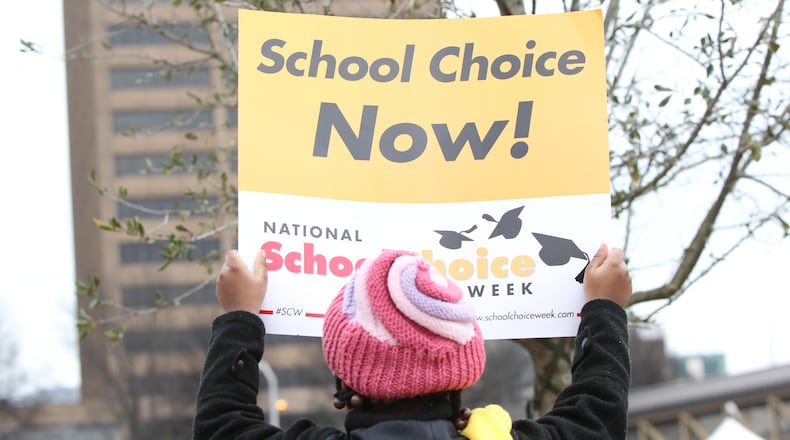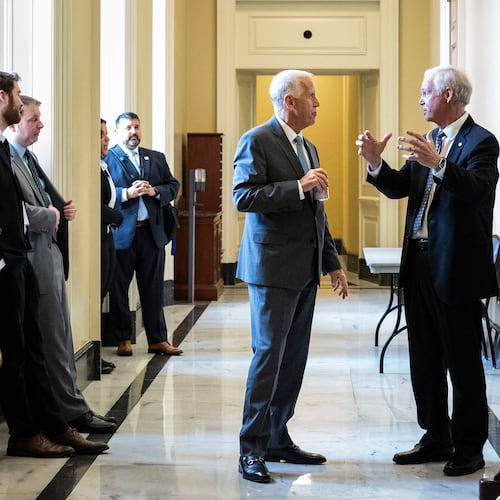School choice was on trial again this week. This time, an attorney told members of the Georgia Supreme Court the case was “about so much more” than the particular law his clients seek to overturn.
He was right, just not in the way he imagined.
At issue is Georgia’s tax-credit scholarship law, which allows donors to private-school scholarship organizations to claim a credit against their state income taxes. The state caps the amount of credits on offer at $58 million per year, which has led to some apparent confusion about just whose money is being spent.
As the U.S. Supreme Court and numerous state courts have recognized, it is not the state’s money when a private individual or company makes a private donation to a private organization. Yet, the plaintiffs in this case stubbornly insist it is. And, having run out of other ways to stop a program they just don’t like, they now argue the program violates the state Constitution’s ban on spending money “directly or indirectly in aid of” religious institutions because some — though not all — of the students who receive these scholarships use them at private schools.
Taken to its natural conclusion, the logic of the plaintiffs’ claim has implications far beyond education policy. These implications were quickly and penetratingly elucidated by Justice David Nahmias.
“When you say (this money is) owed to the treasury, the theory behind that is: The government is entitled to all of my money, unless it lets me keep some of my money,” Nahmias said during Monday’s oral arguments. “A tax credit, or a tax deduction, is just a recognition that I do not have to pay taxes on certain money. But unless your theory is the government owns all of my money to start with, and only gives me the benefit of not paying taxes through deductions or credits, then it is not the government’s money, and it has no direct effect on the state treasury. Or indirect effect.”
The other logical implication of this argument is that if a tax credit for a donation which might indirectly end up being used at a religious school is unconstitutional, a tax deduction for a gift directly to a religious institution would also have to be unlawful.
“You have just undermined everyone in Georgia who wants to take a tax deduction for a charitable donation to their church or synagogue,” Nahmias told the attorney.
While I have little doubt we will soon hear calls to bar the deductibility of such gifts, Georgia’s Supreme Court ought not to beat those radicals to the punch.
The final blow to the plaintiffs’ logic came from one of the defense attorneys, Tim Keller of the Institute for Justice, who represented the families that currently receive scholarships funded by the tax credits.
Keller noted that Oklahoma’s Supreme Court, in a similar case, found “the key phrase was not ‘directly or indirectly,’ but ‘in aid of’ …. And the court there said these types of programs are not in aid of private or religious schools; rather, they are in aid of parents and students.”
That’s exactly right. It is no surprise supporters of an education status quo that jealously guards its money and turf would see private scholarships as a benefit to private schools. The rest of us should see quite plainly that the ones who benefit from the program, and would suffer from its ending, are not schools. They’re students.
About the Author
Keep Reading
The Latest
Featured



